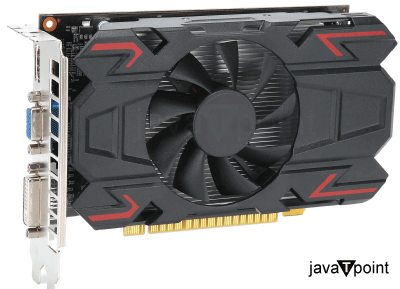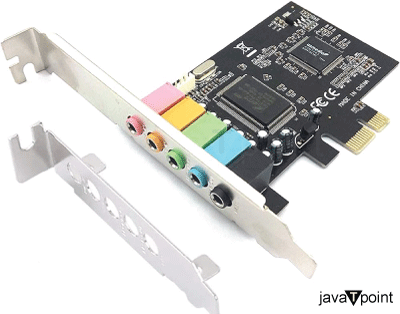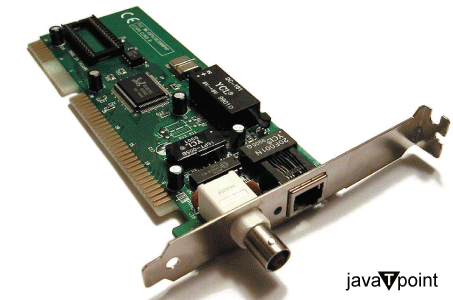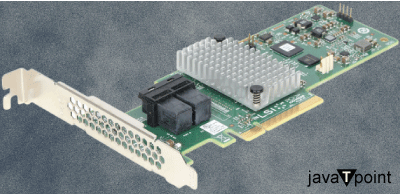What is an Expansion Card?Expansion cards are essential parts that greatly improve the capabilities of computers within the complex world of computer architecture. Adapter cards, often called interface cards or hardware extensions, are just additional circuit boards made to fit into the motherboard of a computer in order to expand its built-in capabilities. By enabling features and functionalities that the motherboard alone cannot provide, expansion cards act as gateways for improving computer's capabilities. These cards are available in a wide range of sizes and designs, each one is carefully designed to fulfill a certain function, such as networking and storage expansion or improving graphics and audio. Using expansion cards, you can take your computer to never before possible levels of performance. For the expert gamer who wants more complex graphics visualization, the musician who wants better sound quality, or the networking expert who wants faster data transfer speeds, expansion cards enable the things to meet these specific needs. The importance of expansion cards is made especially clear by the way they allow modification in terms of quickly changing technological environments. Expansion cards guarantee that computer remains updated and flexible even though software programs become more complex and new features appear. They enable smooth upgrades, saving users time and money by avoiding the requirement for a total system redesign. In simple terms, expansion cards give users a degree of customization, which is not seen in normal computer configurations. They are crucial in the quickly evolving field of digital technology because they provide a flexible and dynamic response to computing requirements. Types of Expansion CardsExpansion cards are a special kind of technology that may be used for a variety of user requirements inside the complex world of computer hardware. There are various types of expansion cards such as: Graphics CardsGraphics cards are specialized parts made for handling graphical responsibilities. They are sometimes known as video cards or GPUs (Graphics Processing Units). They are necessary for tasks like graphic design, video editing, and gaming since they are crucial to the representation of images and movies. By having processors specifically designed to do graphical calculations, graphics cards reduce the load on the computer's main processor. Graphics cards that are equipped with Video RAM (VRAM) guarantee quick access to graphic data, which help to produce visual experiences that are more responsive and fluid. Graphics cards that offer high refresh rates and resolutions provide a visually appealing and realistic experience. 
Sound CardsSound cards, sometimes referred to as audio interfaces, are crucial for raising audio quality. They offer support to professionals who require the best possible sound quality and recording skills, as well as for musicians and music lovers. Sound cards improve the accuracy and quality of audio, offering a more complex and detailed hearing experience. Sound cards that are equipped with numerous input and output channels may handle advanced audio processing and multichannel sound systems. For audio benefits, sound cards usually offer additional functions that go beyond simple audio production, boosting their creative potential. 
Network Interface CardsNICs, or network interface cards, are key for creating and maintaining network connections. They ensure smooth connectivity in a variety of situations because they are available in wired and wireless varieties. High data transfer rates offered by NICs makes it possible for networks to communicate effectively. NICs guarantee interoperability with multiple networking settings and configurations by supporting various kinds of network protocols. Strong security measures found in advanced NICs guarantee safe data transfer in a variety of networking settings. 
Storage Controller CardsData storage is managed and optimized by storage controller cards, which frequently appear in the form of RAID (Redundant Array of Independent Disks) cards. They help in enhancing speed, organization, and data security. RAID configurations are supported by storage controller cards, providing data redundancy and higher efficiency for essential storage requirements. These cards enhance the versatility and flexibility of storage solutions and are compatible with a variety of storage systems. High-performance and well-organized data storage solutions are made easier by these card's characteristics for effective storage management. The broad field of expansion cards has solutions designed to fit your unique needs; whether you want to improve your gaming experience, produce audio that sounds like it was recorded in a studio, build strong network connections or increase storage capacity. 
Evolution of Expansion CardsThe development of expansion cards is an interesting journey through computer history. The idea of modular upgrades first emerged in the early years of personal computing, which is when expansion cards first appeared. These expansion card slots allowed users to add more hardware and functionality, establishing the foundation for the concept of expansion cards. The primary components of the initial expansion cards were serial and parallel interfaces, extra ports, and storage controllers. Customers might add cards to customize their systems to meet their unique needs. As technology advances quickly, expansion cards gained popularity and introduced with increased performance and specialization. Graphics cards became the main focus of expansion card development with the emergence of multimedia applications and gaming. By removing the need for the CPU to handle graphic rendering, graphics accelerator cards like the VGA (Video Graphics Array) has revolutionized the visual computing. Sound cards improved audio quality and added 3D positional audio as they evolved together. In order to meet the increasing demand for realistic sound experiences, audio processing units were integrated into expansion cards during this period. With the development of personal computers, there was a move away from expansion cards and toward the direct integration of some functions into the motherboard. With the introduction of inbuilt graphics and audio, modern motherboards have decreased the need for separate expansion cards to support these features. This simplified the requirements for basic computing, but it also made clear that other applications required more specialized and powerful devices. The development of expansion cards took a major step with the introduction of PCI Express (Peripheral Component Interconnect Express), which offered a fast interface for improved data transfer. Older connectors were replaced by PCI, which provided better communication between expansion cards and the motherboard along with greater bandwidth. In order to fully utilize the capabilities present-day computer systems, this makes it possible to design high-performance graphics cards, storage controllers, and network interface cards. With the introduction of technologies like networking cards, NVMe (Non-Volatile Memory Express) for storage cards, and USB4 for flexible connectivity, the evolution keeps expansion cards at the center of innovative features. These cards have developed to satisfy the wide range of user needs from their simple requirements to the integration of powerful graphics and audio processing and the introduction of modern interfaces like PCIe. Note: Make sure that the expansion cards fit the specifications of the hardware you currently have, particularly the motherboard.Benefits of Expansion CardsExpansion cards are essential parts of the constantly changing world of computer technology, providing a variety of advantages that improve the overall efficiency and flexibility of computing systems. Now we will look into the particular advantages that these expansion cards offer: Enhanced PerformanceOne of the expansion cards' primary benefits is its potential to enhance a computer system's overall performance. Specialized processors, such as sound and graphics cards, are included with expansion cards. Performance and efficiency are improved when specific tasks are separated from the main CPU. Many expansion cards have the parallel processing feature, which enables the simultaneous addition of multiple processes. This parallel processing system greatly increases the system's responsiveness and speed. Customization OptionsThe flexibility for users to personalize and adapt their computer experience to particular needs is another important benefit of expansion cards. There are many different kinds of expansion cards, and each one is designed to address a certain set of features, like network connectivity, storage optimization, audio quality improvement, and graphics enhancement. Users are able to select and install cards according to their needs. Expansion cards enable users modify their systems as technology develops without having to start from scratch. New cards are added to the system to upgrade individual components, keeping the system modern and effective. Increased FunctionalityAn expansion card can greatly increase a computer system's functional range, bringing up new options for users to explore. The purposes of expansion cards are specific. For example, a sound card enhances audio quality, a graphics card improves visual representation, and a network interface card enables seamless connectivity. This specialization guarantees that customer's unique needs and interests may be met. Tip: Installing many expansion cards simultaneously allows users to create a flexible multipurpose system to meet their needs. Future-ProofingExpansion cards allow the upgrading and modification of computer systems to accommodate new technologies. Expansion cards can be updated or replaced to benefit from new technologies as they become accessible. The system's flexibility allows it to adapt to changing software requirements while maintaining competitiveness. Expansion cards can help users extend the life of their computers and save the need for frequent system replacements. There is less technological waste and financial savings as a result. Expansion cards are useful for more than just adding hard. They give users the power to improve performance, personalize their setups, accept new features, and ensure that their machines are ready for the future. Expansion cards are essential components that enable both professionals and fans to fully utilize computing systems as technology progresses. Expansion Cards in GamingExpansion cards are essential for enhancing gaming systems' overall performance and visuals since gaming has developed into a realistic and visually demanding experience. Modern games require graphics cards, regarded as essential devices in the gaming industry. With their dedicated GPUs (Graphics Processing Units), these cards produce visually amazing gaming environments by generating realistic effects, high-resolution textures, and smooth frame rates. The game experience is greatly improved by sound cards. Dedicated gaming sound cards with advanced audio processing capabilities can provide accurate positional audios, realistic soundscapes, and stereo sound. This gives players an advantage by enabling them to easily recognize on-screen sounds, such as footsteps or gunfire, while also improving gameplay experience. Low latency and high bandwidth connections are essential for online gaming, and these can be achieved with Network Interface Cards (NICs) designed specifically for gamers. By reducing latency and improving network speed, these gaming-specific NICs provide priority to data packets associated with gaming traffic. Such improved networking is crucial in competitive gaming scenarios, where decisions made in a split second could be the difference between win and defeat. Additionally, to provide a smooth integration into gaming setups, gaming expansion cards are made to be compatible with industry standards like PCIe. Challenges of Expansion CardsExpansion cards have several advantages for computer systems, but they may also have drawbacks. Users who try to integrate newer expansion cards with older motherboards or vice versa may encounter compatibility concerns. Upgrading the motherboard to support latest expansion cards is sometimes required due to the evolution of interface standards, such as the switch from PCI to PCIe. This can be problematic for users of older systems. Furthermore, the rapid advancement of technology may give rise to a silly problem. Customers may choose between buying the newest expansion cards and waiting for the next generation of variants. In order to maintain optimal performance without early breakdown, it is a challenge to users to update to the advances in technology. Future-proofing the system against compatibility problems is another challenge. While expansion cards increase the adaptability of computers, there's a chance that some of them will become outdated because technology is developing so quickly. Users must carefully check the benefits and drawbacks of buying expansion cards that will meet present requirements against those compatible with emerging technologies to arrive at a long-term and sustainable solution. Storage controller cards can also face difficulties due to the irregularity of data transmission rates and storage capacities users can become trapped in an endless process of switching storage controller cards to satisfy the constantly shifting demands for faster and larger storage solutions. In gaming, players who try to maintain optimal performance may encounter challenges meeting modern games' graphics and processing demands. Upgrading graphics cards is a popular practice among users to meet the demands of the latest games. To maintain the success of their gaming systems, users also need to be aware of emerging technologies. Expansion cards significantly enhance the customization and optimization of computer systems; still, users must stay updated on developing technologies and compatibility issues to overcome these challenges. Despite these challenges, expansion cards can provide customers with several benefits, including the ability to fully customize the systems to meet specific needs and stay updated with technological advancements. ConclusionIn conclusion, expansion cards are crucial parts of the always changing computer world since they give users the ability to improve performance, personalize their setups, and take advantage of new technology. With their continued development, these cards will have a significant impact on how technology develops in the future by helping users understand the complexities of new technology and customize their setups to satisfy the changing needs of the digital era.
Next TopicWhat is an Octothorpe?
|
 For Videos Join Our Youtube Channel: Join Now
For Videos Join Our Youtube Channel: Join Now
Feedback
- Send your Feedback to [email protected]
Help Others, Please Share









